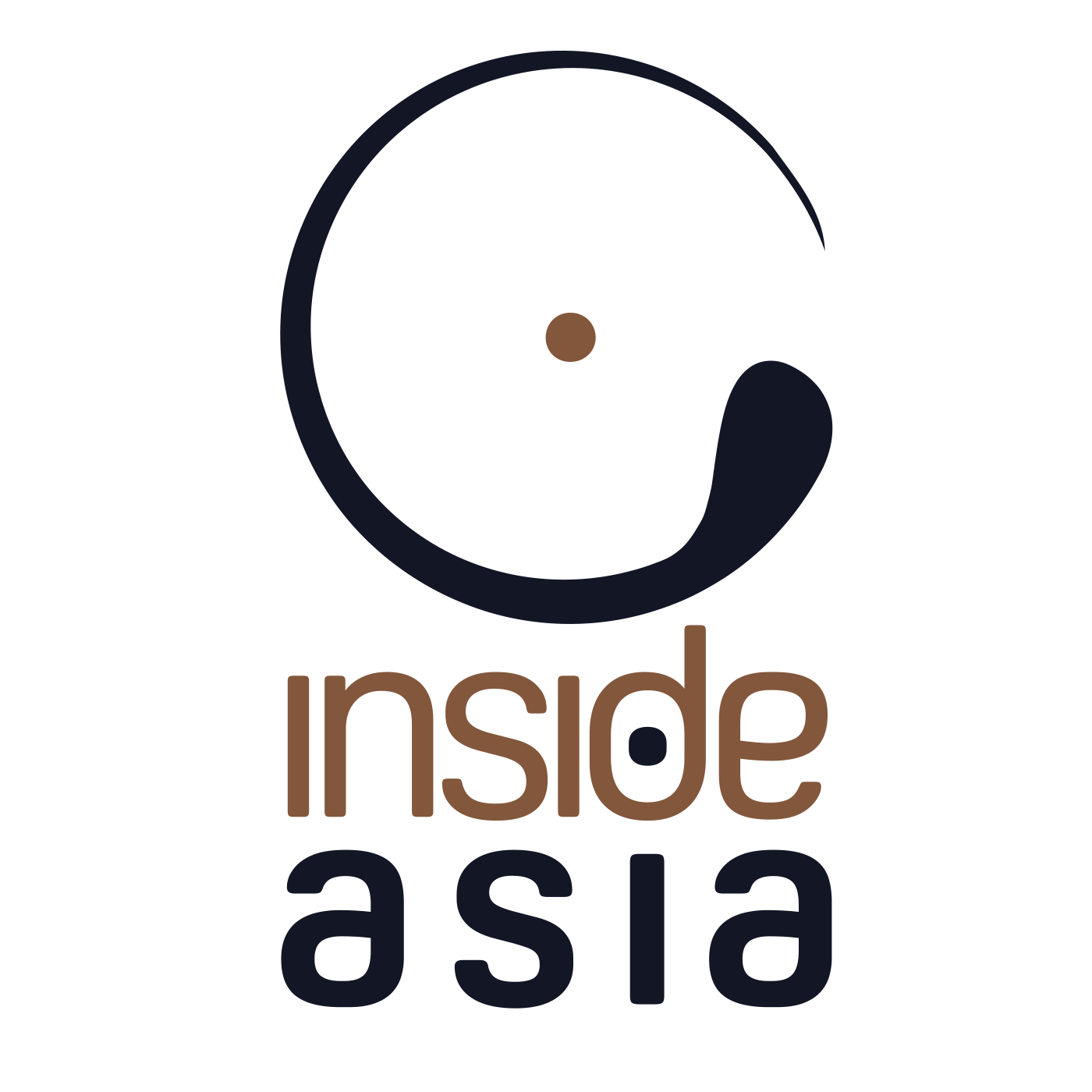Episodes
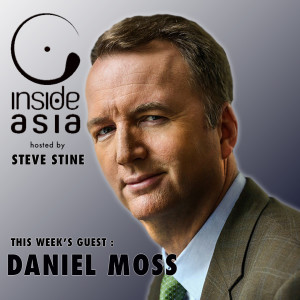
Sunday Jun 21, 2020
Mega-City Madness? (w/ Daniel Moss)
Sunday Jun 21, 2020
Sunday Jun 21, 2020
My guest this week is Daniel Moss, Bloomberg’s Asia Economy columnist based here in Singapore. In this week’s conversation, we contemplate the risks vs. rewards of urban living. We’re talking about mega-cities – defined as urban centers with a population of 10 million or more.
What took hundreds of years in Europe has taken only decades in Asia, and the region for that – plain and simple – is economic growth and opportunity.
For billions of Asians the city means jobs, new wealth, and opportunity. Unfortunately, the dream hasn’t panned out for many - one in three to be exact. By some estimates, over a billion urban-dwelling Asians live in slums and abject poverty. The only reason they stay is because their rural options are even worse.
That fact alone should be enough to point the finger at governments. In this region, cities have received the lion’s share of resource and investment. It’s where you can find the best infrastructure, the best wireless coverage, the most jobs, and if can afford it, the best housing.
Rural communities, on the other hand, have been left to their own devices. For many, even basic electricity and indoor plumbing remains a distant dream.
Some attempts – albeit few – have been made by governments to right this wrong. Although, if truth be told, investment in outlying communities probably has more to do with political expediency than economic altruism.
I ask Daniel to share with us his thoughts on Asian urbanization and how Covid-19 might encourage a re-think.
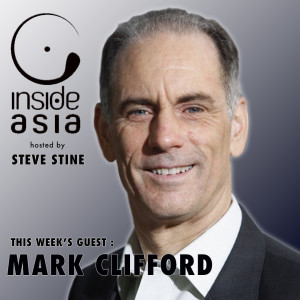
Wednesday Jun 10, 2020
Hong Kong Doth Protest (w/ Mark Clifford)
Wednesday Jun 10, 2020
Wednesday Jun 10, 2020
This week I’m in conversation with Mark Clifford, a long-time resident of Hong Kong, a former journalist and Editor-in-Chief of the South China Morning Post, and for the past 13 years, Executive Director of the Asia Business Council. In our conversation we look to Hong Kong. It’s been 23 years since the handover of the former British colony to to the People’s Republic of China. In that time, economic prosperity has grown, but so has political disharmony.
In years past, public protests – sometimes in the millions – have provided Hong Kong residents with the means to make their voices heard. With the exception of pro-democracy marches in December 2005, the first of five promised decades of guaranteed autonomy went relatively well. Hong Kong had its issues like any other major metropolitan center, but China – for the most part – behaved, leaving Hong Kong to do what Hong Kong does best – make money.
Maybe it was the jarring of the global economic crises in 2008 or repeated failed promises by Beijing to allow universal suffrage, but by 2010, tensions mounted. For nearly every year since then, the people of Hong Kong have taken to the streets, tongue-lashing China for it’s sometimes subtle – and sometimes not so subtle – infringements on Hong Kong’s sovereignty.
Security laws have been cause for the largest protests. One year ago, an estimated two million people turned out when the Hong Kong legislature – at Beijing’s behest – tried to push through a controversial bill allowing criminal extradition to China.
Two million Hong Kong Chinese can’t be wrong. They’ve lived on the edge of the world’s most powerful communist country and many are all too familiar with how the mainland bends the law to support its own ends.
So what does this all mean for Hong Kong’s economy and the companies vested in its future? Listen to my conversation with Mark and find out.
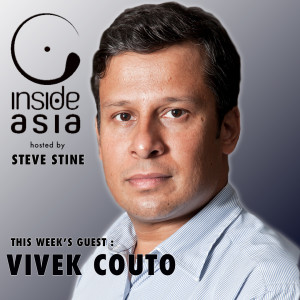
Friday Jun 05, 2020
Media Madness (w/ Vivek Couto)
Friday Jun 05, 2020
Friday Jun 05, 2020
This week I’m in conversation with Vivek Couto, Executive Director and Co-Founder of Media Partners Asia, a market research and consulting firm catering to the telecom, media and entertainment industry. According to Vivek, total minutes spent viewing online video in Southeast Asia jumped 60% in the first quarter of the year. Most of that new viewership occurred via smartphones, which suggests that video streaming is a private affair. Gone are the days when families circled up around the TV set to watch their favorite drama or gameshow.
That’s a problem for content providers and advertisers who rely on programming reach. While programming choice is great for consumers, it makes the economics of the media industry ever more difficult.
Even before the Covid crises, pay-TV operators were feeling the pinch. Billions of dollars have been deployed by licensed operators from Singapore to Seoul. They’ve spent handsomely on fiber optics networks, satellite links, and customer care and billing services just to keep their customers happy.
Then along came the disrupters, those so-called over-the-top or OTT providers that charge a low monthly fee for all the streaming video you can consume. You know the ones I’m talking about: Netflix, Hulu, HBO-Now. Add to these a new tier of regional or single-market providers, and the market is flush in quick and cheap subscription choices.
How the industry is struggling to adjust is the subject of my conversation.
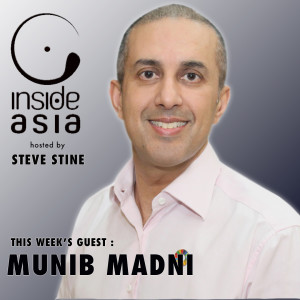
Thursday May 28, 2020
Purpose-Driven Investing (w/ Munib Madni)
Thursday May 28, 2020
Thursday May 28, 2020
After Covid-19, one of the biggest subjects occupying academia and boardrooms is Conscious Capitalism. You’re either deeply familiar with the term, or you’re not. If you’re not, climb aboard. Capitalism as we know it is about to undergo a major transformation.
For the better part of a year now, the topic has been coming up in conversations with CEOs, investors and thought-leaders, who say the old paradigm of operating solely in the interest of shareholders is done and dusted. The new paradigm is more inclusive. That means accommodating and protecting the interests of a broader group of stakeholders, including employees, the environment, and society at large.
Some cynics say it’s already too late. Optimists, on the other hand, believe that through consensus building, re-allocation of resources, and top-down leadership, it is not only possible, but probable. Evidence abounds showing that corporations can be both profit- and purpose-driven.
Up this week, the asset management industry. As buyers and sellers of corporate assets, they are the proverbial gate-keepers of corporate financial performance. With $80 trillion under management worldwide, there’s power at play. Fortunes have been made and lost on the decisions laid down by asset managers. For the longest time, financial performance has remained the central barometer for all buy and sell decisions. This too must change.
Enter a new breed of asset manager. Those that believe that the best corporations are those that do well by doing good. In this week’s episode, I speak to one such individual. Munib Madni spent 13-1/2 years with Morgan Stanley before he saw the light, resigned, then re-emerged as CEO of his own asset management firm, Panarchy Partners.
In this conversation with Munib, we talk about the evolution of the industry, the forces now shaping a new kind of investing, and the emergence of corporations, poised to make a difference.
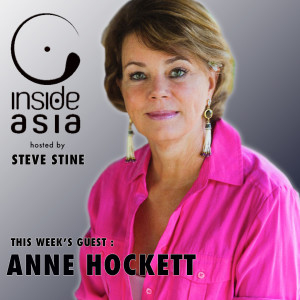
Friday May 22, 2020
Lockdown to Rebound (w/ Anne Hockett)
Friday May 22, 2020
Friday May 22, 2020
Lockdown to Rebound. That’s the theme of this this episode. But, unlike other episodes where we ferret out experts living and operating in the greater Asia region, this conversation brings it all back home - literally.
Hunkered down in Singapore, I – like many of you – have had ample time to contemplate life and some of the bigger questions. We’ve all employed coping mechanisms, started new hobbies, or maybe just caught up on sleep. There’s no right or wrong solution. It’s all about creating some peace of mind, but also developing a few practices to better build physical and mental well-being.
Fifteen years ago, Anne created Youhealing, a service designed to offer health, nutrition, and wellness advice. Over the years she’s consulted with thousands of clients on how to best restore and preserve good health. She’s been talking about the importance of boosting the immune system longer than anyone I know. That seemed like appropriate fodder in a world where personal healthcare responsibility is the custom of the day.
So it is, on the occasion of our nightly dialog, that we turned our attention to what life in lockdown has taught us. We also ventured into what can be done to combat a virus for which there’s currently no medical solution.
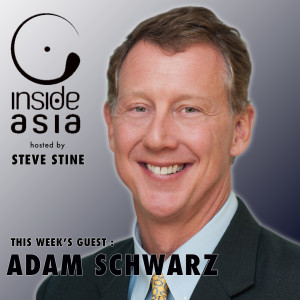
Thursday May 14, 2020
Southeast Asia: Political Pawn or Proxy (w/ Adam Schwarz)
Thursday May 14, 2020
Thursday May 14, 2020
My guest in this Inside Asia episode is Adam Schwarz, Founder and CEO of Asia Group Advisors, a strategy and investment advisory firm operating across Southeast Asia. Adam and his firm have made it their business to understand the economic and geopolitical complexities that inhabit this part of the world.
In this conversation, we unpack some of the challenges the region faces from the Coronavirus outbreak to the rising influence of its neighbor to the north – China.
As my conversation with Adam reveals, investors are swarming, supply-chains are shifting, and confidence is mounting. The sub-region’s ability to weather and managed the Covid-19 crises will either make or break the rate of that ascendance. Much is yet to be seen.
Politically, the US has distanced itself from the region for all the wrong reasons and at precisely the wrong time. US investors and multinationals operating in this part of the world aren’t happy about that. Layer in China’s ambitions and the fact that it is now the region’s largest trading partner and the possibility for one of two scenarios emerges.
I start out by asking Adam to reflect on how less developed markets in the region were equipped to handle the outbreak of the Coronavirus.
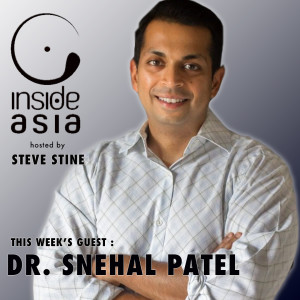
Friday May 08, 2020
Telemedicine's Breakaway Moment (w/ Dr. Snehal Patel)
Friday May 08, 2020
Friday May 08, 2020
If this conversation with MyDoc CEO, Dr. Snehal Patel is any indicator, the Coronavirus pandemic has given the healthtech sector and unasked for boost. From Singapore to China, telemedicine is taking a load off bricks & mortar hospitals scrambling to care for Cvoid-19 patients.
In Singapore alone there are nearly a dozen tele-medicine providers. Download an app, register, and within minutes, your in video consultation with a live doctor. He or she can diagnose and prescribe what you need. And here’s the best part, any medication, if required, can be delivered to your home. It’s simple, and affordable, and yet, some habits die hard. For many, there’s face-to-face appeal of a doctor’s visit. Some discussions are simply better had in private. Doctors are trusted with the most sensitive - and in some cases – life confronting matters.
But more than that, the story of telemedicine calls into question the larger tale of a healthcare system gone rogue. Infectious diseases - as recent circumstances have shown - still pose a real threat. And yet, the lion’s share of government and private sector investment has for years been directed at the treatment of chronic ailments. Perhaps this pandemic is just the jolt governments in the region need in order to rethink the future of healthcare.
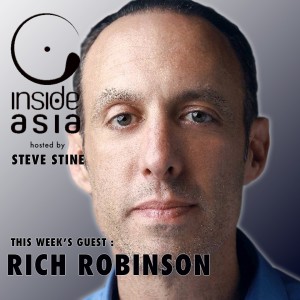
Thursday Apr 30, 2020
China’s Enduring Start-ups (w/ Rich Robinson)
Thursday Apr 30, 2020
Thursday Apr 30, 2020
Earlier this week, the city of Wuhan discharged from hospitals the last of its patients infected with Covid-19, while nationwide, only three new cases were reported. In the latest official count, China reported 82,000 instances and 4,633 deaths. Many countries in Europe and the U.S. have blown well past that.
Of course, no one knows if, when and how a second wave of the virus will come. The bigger queston – at least for the moment - is the economy. How hard was it hit and what long-term damage has been done?
At least one group – venture capitalists – appear unperturbed. Their enthusiasm for China tech start-ups knows no bounds. In late March alone, Chinese firms recorded 66 venture capital deals. That’s the highest level of activity in 2020 and nearly the same level from the same time last year. Not surprisingly, Robotics, EdTech, Supply-Chain and Healthcare companies received the lion’s share of funding. Any solution that might serve the new operating realities of a post-Covid-19 world are hot prospects, and getting hotter.
Here to talk to me about the Chinese start-up culture is Rich Robinson. He’s spent over 20 years in China tracking and participating in the rise of the China tech revolution. His awe for the Chinese entrepreneur is apparent, but he has some worries too.
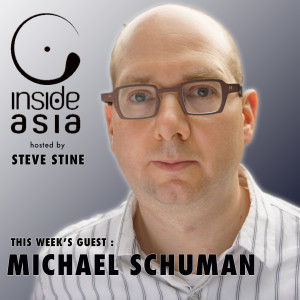
Thursday Apr 23, 2020
Superpower Interrupted
Thursday Apr 23, 2020
Thursday Apr 23, 2020
Prior to the outbreak, the greatest force in this part of the world was China. It’s awesome 40-year sprint to rise from ecominic backwater to international Superpower is the stuff of legend. For the longest time, it was a tale of economic prowess and an apparent embrace of free-market enterprise. A sign, perhaps, of China’s joining the economic league of nations. But appearances can be deceiving. The Middle Kingdom may have a plan of its own.
The past few years suggest as much. Under the leadership of Xi Jinping, China is flexing some newfound geopolitical muscle marked by ambitious plans that speak of global expansion and smack of hubris. Two programs in particular - The Belt and Road Initiative and Made in China 2025 have received the lion’s share of attention. But there are dozens of others that reveal China’s newfound ambitions. From infrastructure to artificial intelligence, China is on the march.
Into this vacuum comes my guest, Michael Schuman. He’s a long-time journalist with The Wall Street Journal and Timemagazine, and author of several books. His latest: Superpower Interrupted. The title says is all.
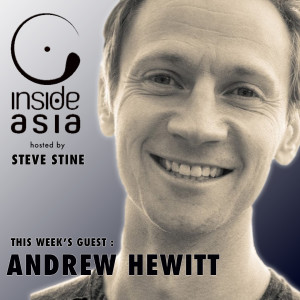
Monday Apr 13, 2020
A Case for Conscious Capitalism (w/ Andrew Hewitt)
Monday Apr 13, 2020
Monday Apr 13, 2020
My guest this week is Andrew Hewitt, founder of GameChangers 500, an organization bent on identifying and ranking global organizations looking to make a difference. Andrew and his GameChanger colleagues have come to believe, and I quote, “that the profit-at-all-cost model just isn’t working,” end quote.
Many of our listeners know, this is a subject near and dear to the heart. The world is coming to realize that the Earth is resource limited. The party is dwindling, and if, as a race, we hope to survive and thrive, change is essential.
Essential, indeed. But unfortunately, not inevitable. For that, we need to do some heavy lifting. Some say only the private sector with its vast resources, top talent and eye on innovation can lead that change.
But making the leap from profit- to purpose-driven is no easy task. No one knows this better than Andrew Hewitt. In our conversation he shares many of the ups and downs that come with being on the front lines of a purpose-driven movement.

